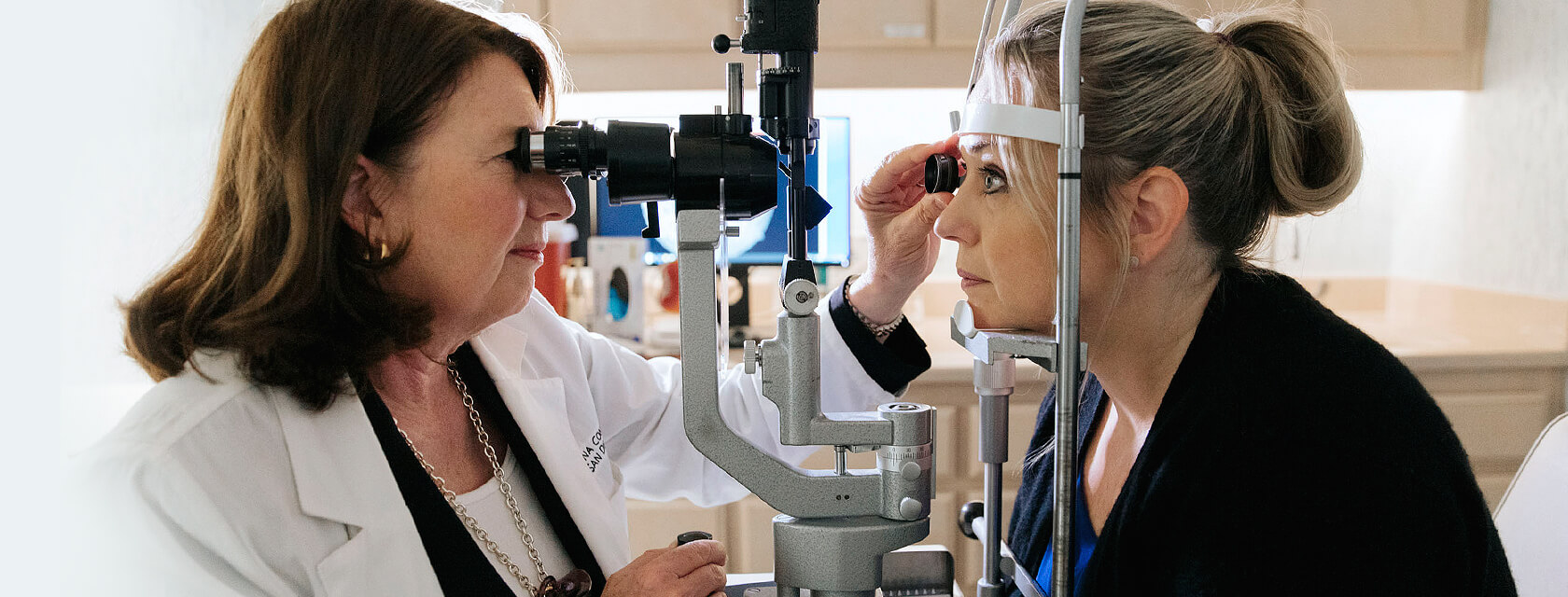Before getting started, read our Retina 101 page.
What is retinal vein occlusion?
Veins are thin-walled blood vessels that return blood from the various tissues of the body to the heart. In the retina, veins and arteries travel together, and appear like the branches of a tree with the “trunk” starting at the center of the optic nerve. At the optic nerve, the vessels enter and exit the eye, and branch into smaller and smaller vessels throughout the retina. Where veins and arteries cross there is a ribbon of tissue that binds them together. Over years, particularly in patients with hypertension, the arteries can thicken with hardening of the walls (atherosclerosis). As the artery thickens, the adjacent vein can become compressed. If the vein is completely compressed, blood flow stops and pressure builds up in the smaller vessels, eventually leading to rupture of the smallest capillaries, and bleeding in the adjacent retina. This process leads to inflammation in the eye, inflammation may result in leakage from blood vessels, and significant leakage may lead to swelling in the macula (macular edema). Very severe occlusions with substantial loss of blood supply to the retina may lead to unhealthy new blood vessel growth and/or permanent loss of vision.
![Color photograph and optical coherence tomography [OCT] scan showing branch retinal vein occlusion [BRVO].](https://www.rcsd.com/media/pages/retina-conditions/retinal-vein-occlusion/d952ea3e28-1679682951/retinal-vein-occlusion.jpeg)
Patients are typically asymptomatic unless there is macular edema or a severe occlusion with loss of blood supply to the macula or bleeding into the vitreous. Patients with macular edema will have variable blurring of the central vision.
The findings depend on the size of the vein involved, ranging from the main trunk in the optic nerve, to a small branch. There will be hemorrhages in the area of the occlusion, and, potentially swelling in the macula. Eyes with new blood vessel growth will show these as well as possible significant bleeding into the vitreous.
Mild occlusions can be observed. Eyes with macular edema or bleeding are typically treated with medications injected into the vitreous. Eyes with severe disease may need retinal laser and/or vitrectomy, but this is fairly uncommon.
There are several exciting new treatment options being evaluated in various stages of clinical trials.
Most patients do well. Eyes with only macular edema respond very well to injections, which need to be continued for several years until the blood vessels repair themselves. Eyes with loss of blood vessels involving the macular will have permanent loss of vision.

